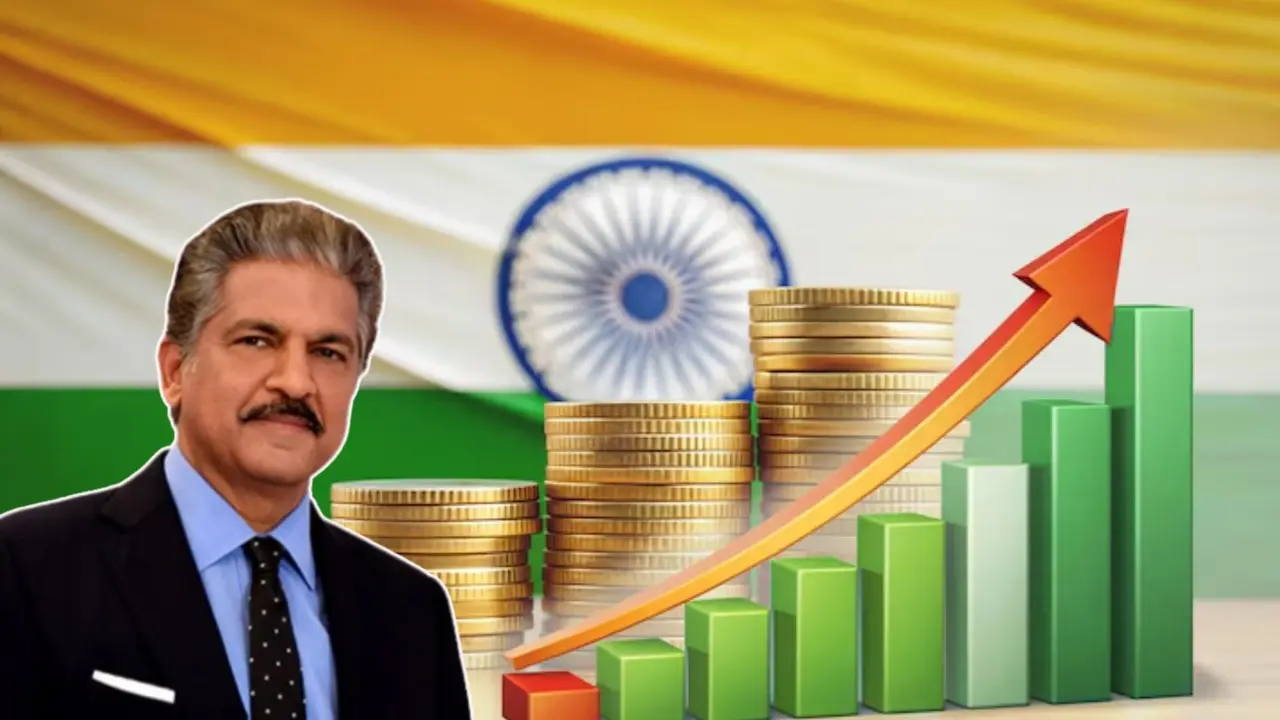Updated 5 July 2025 at 18:21 IST
'Like Lord Shiva Holding the Poison' — Anand Mahindra Urges India To Contain Global Crisis Without Letting It Spread
Mahindra stated that while the world faces economic and political upheaval, new possibilities are also being created. Trade tensions, such as those between the US. and China, are disrupting global supply chains, forcing countries and businesses to rethink old ways.
- Republic Business
- 3 min read

At the Mahindra Group’s latest Annual General Meeting, Chairman Anand Mahindra described the current global situation as one of deep change and uncertainty.
Drawing inspiration from mythology and music, he said, “The times, they are a-changing,” quoting Bob Dylan. He compared the present global unrest to the Samudra Manthan—a great churning of the ocean in Indian mythology—where both poison and nectar emerged.
Mahindra stated that while the world faces economic and political upheaval, new possibilities are also being created. Trade tensions, such as those between the US. and China, are disrupting global supply chains, forcing countries and businesses to rethink old ways.
As alliances shift and protectionism rises, companies are under pressure to localise operations, find new markets, and cut dependence on any one country.
Advertisement
India, too, will face its share of challenges. Rising input costs, a widening trade deficit, and increased global competition could impact key sectors like steel, aluminium, and exports. But Mahindra stressed that this shouldn’t just be seen as a problem to manage. Instead, he said India should treat it as a chance to grow faster—with private businesses leading the way.
Also Read: Deadly Poison or Hidden Nectar? Anand Mahindra Decodes the Future of Global Trade | Republic World
Advertisement
According to him, “Industries reliant on global supply chains — like electronics and consumer goods — will bear the brunt of rising input costs. Countries deeply integrated into global trade networks must rethink dependencies and diversify sourcing.”
He pointed out that China’s strained relations with the world could open doors for India to become a serious alternative in global manufacturing. But success would depend on speed, investment, and strategic focus. Countries like Vietnam and the Philippines are already competing for the same space, he noted.
“China’s adversarial stance may create opportunities for India to position itself as a supply chain alternative — a long-term goal for Indian business. Innovation and R&D could receive renewed focus, while manufacturing could once again take centre stage. Restrictions on China and high tariffs for other competing countries could open new markets for Indian goods. The potential exists but achieving it will require a concerted focus on manufacturing and a palpable increase in private investment,” stated Mahindra in the AGM speech.
Mahindra also said that India is already moving in the right direction, with initiatives like Make in India and the PLI scheme. He urged businesses to align themselves with national goals and invest in fast-growing areas like electric vehicles, defence, and renewable energy.
The speech also touched on the future of globalization. Mahindra said we’re not seeing the end of globalization, but rather a new form of it—one that is multi-polar, regional, and shaped by national needs. He believes India, with its democratic stability and growing credibility, is well-placed to be one of the new centres of global trade and influence.
Reflecting on Mahindra Group’s own journey, he explained how its federated structure—symbolized by the banyan tree—has allowed different parts of the company to grow independently while supporting the overall group. This, he said, is why Mahindra has been able to adapt through decades of change, from the oil crisis to liberalization, and from the 2008 crash to the COVID-19 pandemic.
He ended his address by saying that resilience and adaptability will decide who succeeds in this uncertain world. “The winners,” he said, “will be those who can navigate change and turn it into opportunity. I believe Mahindra—and India—are ready for that challenge.”
Published By : Avishek Banerjee
Published On: 5 July 2025 at 18:11 IST
